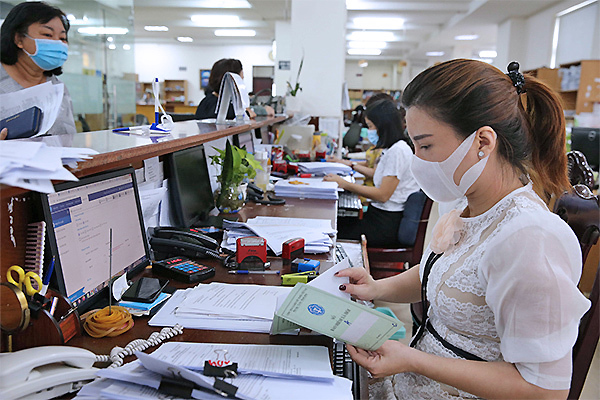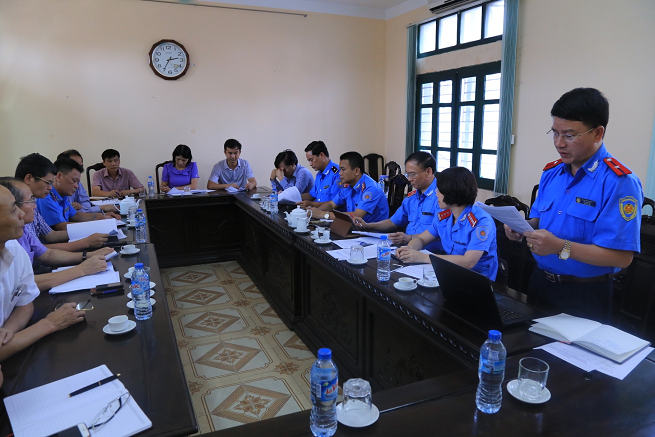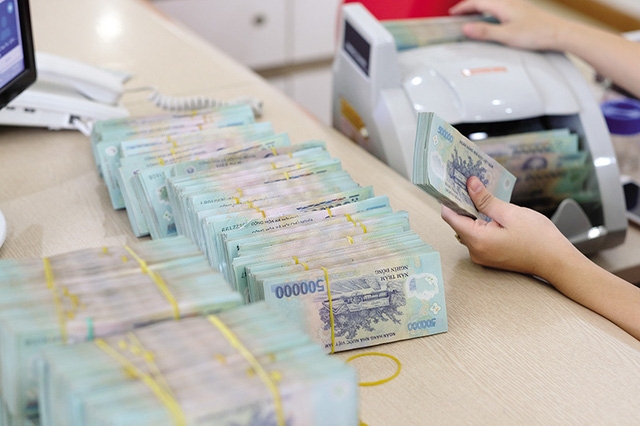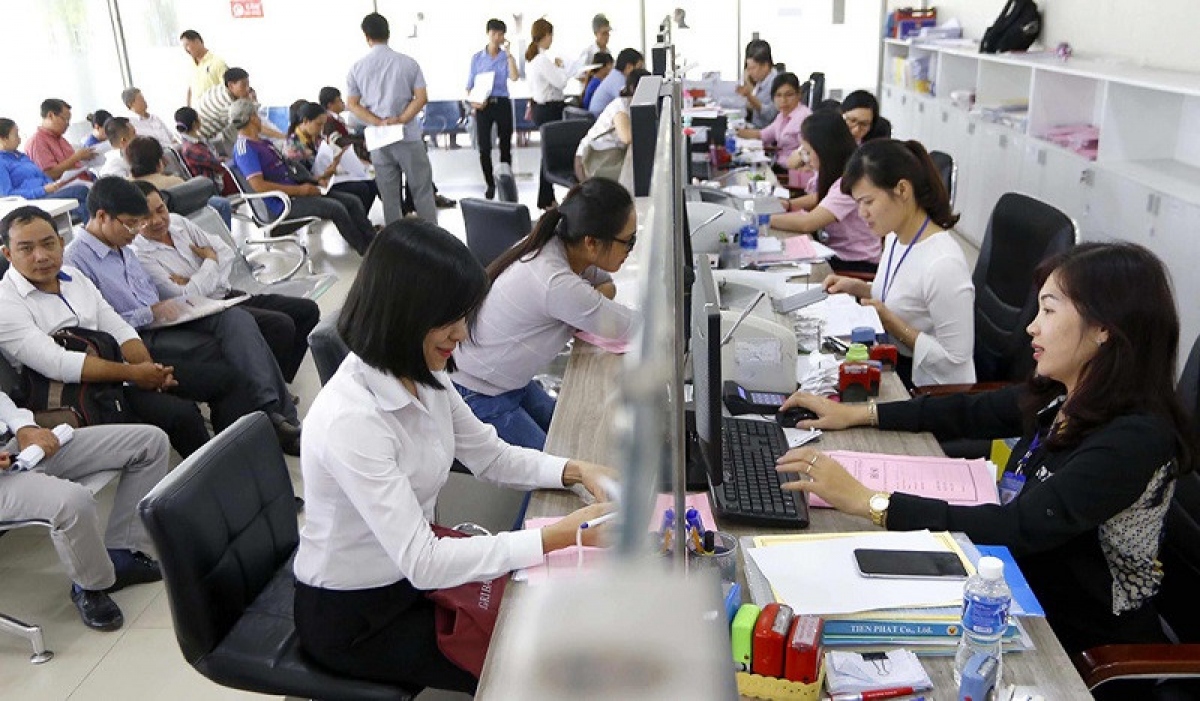In 2021, all officials and public employees must declare their assets and income right in the first quarter of 2021, which is a remarkable content shared by the Director of the Legal Department.

Specifically, according to Mr. Dinh Van Minh - Head of Legal Department - Government Inspectorate, the Decree No. 130/2020/NĐ-CP of the Vietnam’s Government takes effect from December 20, 2020, however, due to the complicated nature and the large number of asset declarers and several new provisions, the Decree could not be implemented immediately. The implementation of this Decree will start from January 01, 2021 and be completed in the first quarter of 2021. The following issues should be noted:
Firstly, who is required to make declaration of assets and income?
Mr. Dinh Van Minh said that the object of declaration of assets and income is now both broad and focused. Especially, the subject of declaration was only the head of the district-level department or higher according to the previous regulation, now all officials and public employees must declare, except for public employees, from the deputy department.
According to Article 36 of the Anti-corruption Law of Vietnam, entities must take first declaration and only one declaration as a very normal operation in the personnel file and only have to do additional declaration when assets increase by VND 300 million include:
- All officials and public employees;
- Deputy managers of public service agencies, state-owned enterprises;
- Commissioned officers of police and military forces, career military personnel;
- Nominees for the National Assembly delegates and the People’s Councils delegates.
Secondly, who is required to make annual declaration of assets and income?
According to Article 10 of the Decree No. 130/2020/NĐ-CP of the Vietnam’s Government, persons obliged to make declarations include:
1. Enforcement officers; (previously specified in Clause 8 Article 7 of the Decree No. 78/2013/NĐ-CP)
2. Investigators; (previously specified in Clause 8 Article 7 of the Decree No. 78/2013/NĐ-CP)
3. Accountants; (completely new provision)
4. Rangers; (completely new provision)
5. Procurators; (previously specified in Clause 8 Article 7 of the Decree No. 78/2013/NĐ-CP)
6. Banking procurators; (completely new provision)
7. Market controllers; (completely new provision)
8. Auditors; (previously specified in Clause 8 Article 7 of the Decree No. 78/2013/NĐ-CP)
9. Examiners of the Communist Party; (completely new provision)
10. Customs examiners; (completely new provision)
11. Tax examiners; (completely new provision)
12. Inspectors; (previously specified in Clause 8 Article 7 of the Decree No. 78/2013/NĐ-CP)
13. Judges; (previously specified in Clause 8 Article 7 of the Decree No. 78/2013/NĐ-CP)
14. Holders of positions of deputy managers and above in fields specified in the Appendix III attached to the Decree No. 130/2020/NĐ-CP of the Vietnam’s Government; (completely new provision)
15. Representatives of state capital in enterprises; (completely new provision)
16. Holders of positions of Department Directors and above. (mới hoàn toàn)
Thus, it can be seen that this group has more opportunities for corruption and is more prone to corruption, so this group needs to be more controlled.
Thirdly, what is random verification of asset declarers?
It can be understood that random verification of the declarer means that anyone can be verified at any time and for no reason. This form is to remind and warn all property declarers that no matter how well concealed, at any time it may be subject to verification. This is also intended for the declarant to uphold the responsibility and honesty when signing the property declaration. (according to Mr. Dinh Van Minh)
In addition, the Decree No. 130/2020/NĐ-CP of the Vietnam’s Government also stipulates that every year, the Government Inspectorate will have an orientation for the development of verification plans and the above ministries, branches and localities have their departments to develop and implement. The asset and income control agency randomly selects the verified person. The selection is made publicly by lottery or using computer software.
In particular, the verification of income and assets has an important purpose, especially to assess whether the declarer is honest or dishonest. If the declarer is found to be dishonest, depending on the nature and extent of the declaration, he or she may be warned, salary downgraded, demoted, removed from office or forced to resign. If they are being planned, they will be left out of the planning; if they are running for office, his/her name is crossed out from the list of candidates; if he/she is expected to be appointed, he/she will not be appointed.
Fourthly, will the property of relatives that are related also be handled?
Currently, the property declaration is still limited as it can only control the assets of officials and public employees, which easily leads to the situation that the property is in the name of another person.
It can be seen that, according to the previous anti-corruption law, corrupt property is the property of the corrupt person, which means that when it is in someone else's name, it cannot be handled. However, according to Clause 3 Article 3 of the current Anti-corruption Law of Vietnam, corrupt assets are assets derived from corruption.
Therefore, in case that the property can be proved to be derived from corruption, even though the property is in the name of another person, it is completely sufficient to handle according to regulations.
Le Vy
 Article table of contents
Article table of contents
![[InfoGraphic] 6 forms of discipline for officials and public employees under Decree 71/2016/ND-CP](https://cdn.lawnet.vn//uploads/NewsThumbnail/2016/07/12/1319291-01.png)






.jpg)


.Medium.png)
.Medium.png)
.Medium.png)
.Medium.png)
